Q&A With Sullivans Cove Distillery
Interview with the Award-Winning Tasmanian Distillery
By Richard Thomas
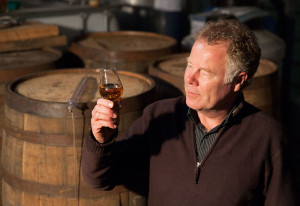
(Credit: Sullivans Cove)
Sullivans Cove wasn’t the first whisky distillery to come out of Australia’s early 1990s legalization, but it got started early and has come out twenty years later at the forefront of one of the most vibrant of the world’s new national whiskey industries. The distillery now has three single malt expressions out: an American Oak Bourbon Cask; a French Oak Port Cask; and a double wood that brings those two together.
We were fortunate enough to have a chat Patrick Maguire, Sullivans Cove’s boss and Master Distiller, and Bert Cason, their marketing director, about the ins and outs of making whisky in Tasmania and what is coming down the pike for their distillery.
RT: Sullivan’s Cove looks very much like a family operation, what with Patrick and Bruce Maquire plus cousin Phillip Jackson. But Patrick didn’t come onto Sullivan’s Cove as its Distiller until five years into its operation, and the others didn’t join until after that. What drew the Maquire crew into whisky-making?
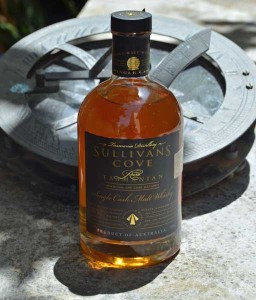
(Credit: Richard Thomas)
PM: It has become something of a family operation over the past few years. To start with it wasn’t. I joined the distilling team in September 1999. The then Tasmania Distillery company went broke and was liquidated in 2003 after we had made over 600 barrels of our finest whisky spirit. I got a small team together, set up a new Tasmanian Distillery company and bought the liquidated plant and stock (including the barrels of whisky) in November 2003 and for a few years after that the distillery operated with myself and one other distiller, Paul Monks. We continued to produce around 120 barrels of whisky per year. As things got busy and Paul went part time to start his own business, Phillip (Jacko) Jackson joined the team in 2006. Then as orders increased, Bruce came in in 2008, Paul left in 2009 to start his own business (not related to distilling). It was then truly a family operation. In the past two years others have joined the team however non are related. I think the reason some of my family came on board is because they could see the business was working and they, like me, were keen to be a part of a new industry in Tasmania. they also have a liking for beverages of an alcoholic nature. It is part of the age old thing where small businesses are started by one family member and then as the business grows other family members join up. Its a good way to operate.
RT: Those of us who know world whisky understand how important climate is in the aging process. Take Kentucky’s hot summers vs. Scotland’s mild summers, for example, and what that does to the juice in the barrels year after year. What is Tasmania’s climate like, and how does that impact on the maturation of Sullivan’s Cove whisky?
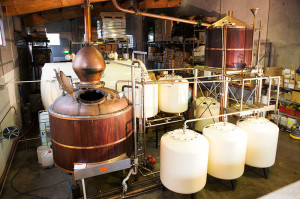
(Credit: Sullivans Cove)
PM: We are somewhere in-between Kentucky and Scotland. Tasmania has a temperate maritime climate. We enjoy cold rainy winters with snow on the highlands and warm moderate summers. It is also a dry climate in our part of Tasmania. This had a profound effect on the maturation of our whisky. Our barrels lose a higher volume per year than our Scottish counterparts (up to 4%) however as we have a dryer and somewhat warmer climate we tend to lose more water than alcohol. This has the effect of increasing or concentrating the alcohol percentage in the barrels. The barrels are filled at a strength of 63.4% abv and we often decant a mature barrel, 10 to 14 years later at over 70%, sometimes up to 73% abv. The moderate temperatures and dry conditions help to dissipate the volatiles at a faster rate than in Scotland giving us some creamy, rounded and flavoursome whiskies, sooner.
RT: Your whisky is aged in either bourbon barrels or French oak port barrels. Can you tell us whose bourbon and port was aging in those barrels before you got them?
BC: The bourbon barrels came from Jim Beam, Jack Daniels and Heaven Hill and the port barrels are from McWilliams in New South Wales, Australia.
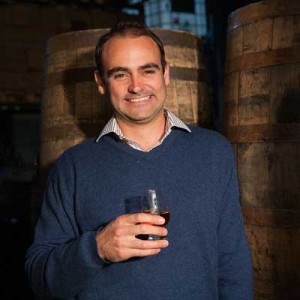
(Credit: Sullivans Cove)
RT: I’ve heard rumors that you have a cask strength, “Ballbreaker,” coming out. Could you tell us about that?
BC: Yes, this is a one-off single cask release planned for Australia only. It will be bottled at full cask strength, no water added, no filtering. Barrels of this type are rare because this barrel has to be “strong” enough to stand alone and also be drinkable at around 70% abv. We have tasted some exceptional candidates and are having a lot of fun finding the right barrel! The release will be announced in the coming months.
RT: As Australian whisky gets more attention, the demand for it will only increase. Sullivans Cove is now available in 11 countries, and I’ve read in the past that you are having some trouble meeting just your domestic demand. Are there any expansion plans in your future?
BC: We are keeping a close eye on sales and available stock to make sure that we can service all of our existing markets. That said, we are always happy to talk to new markets provided that we can service them.

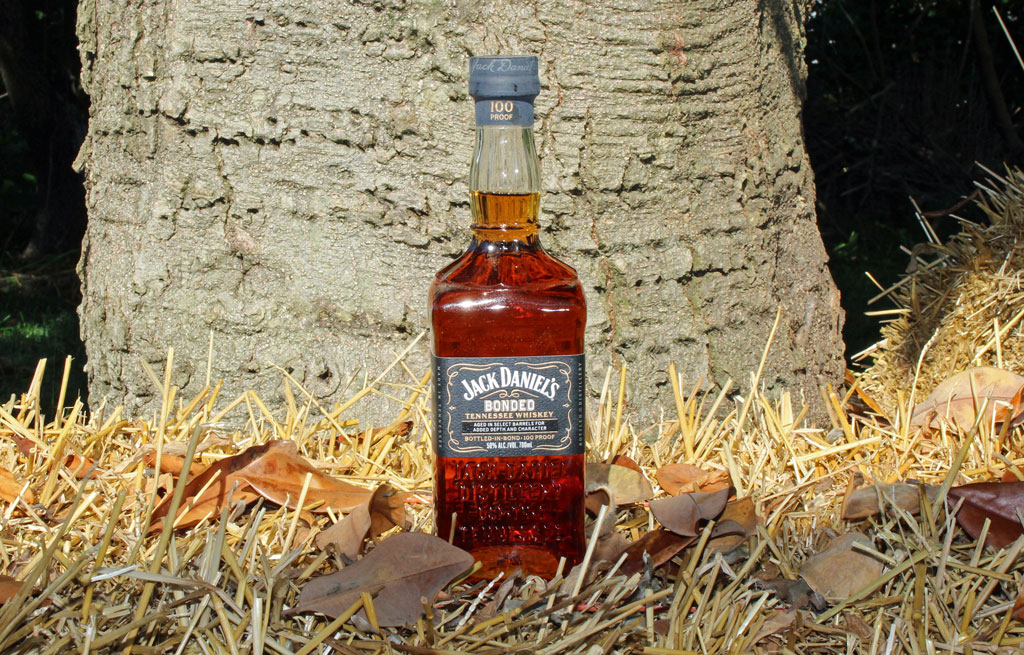
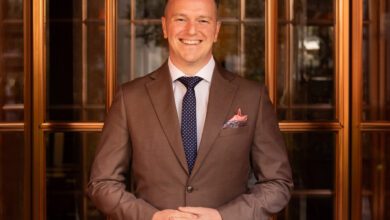

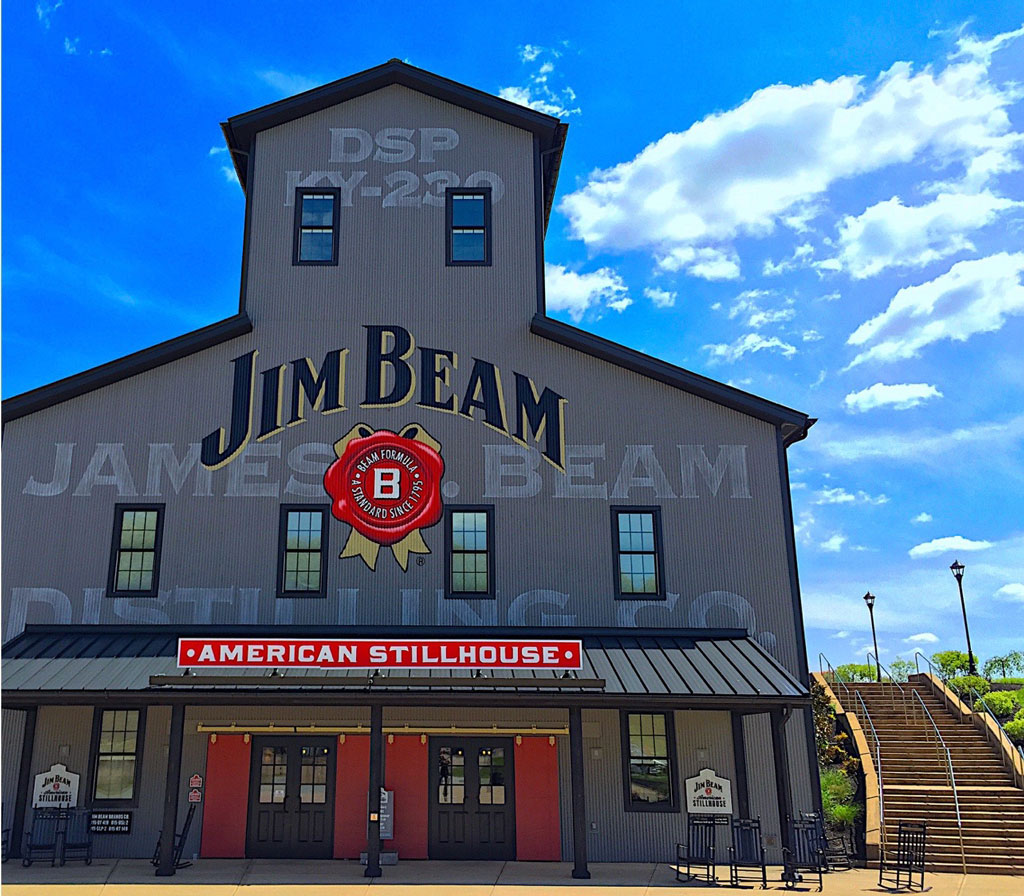
Please we need some of you scotch whiskey in NZ, we are so close; like our dollar and we can now afford the best in the world 🙂 Mark me down for one and let you distributor know.
Interesting informations regarding the sector can be shared.